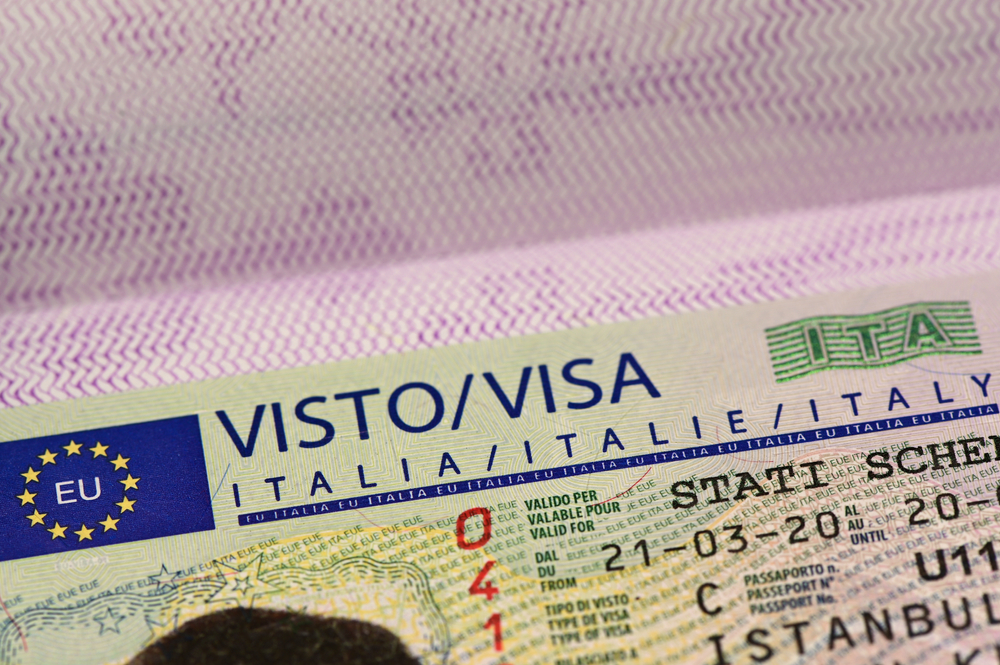How Americans Can Move to Italy: U.S. Consulate Update
Dreaming of la dolce vita in Italy? If you’re an American looking to swap your current work-from-home setup for a more picturesque backdrop, Italy’s new Digital Nomad Visa might be just the ticket. This visa opens the door for remote workers, freelancers, and entrepreneurs to live and work in Italy legally, but how does it compare to the Remote Worker option? Let’s dive into both options and help you decide which one suits your Italian adventure.
Consulate Jurisdiction
The Italian General Consulate in Miami (Consolato Generale d’Italia) serves Italian citizens and visa applicants residing in Florida, Georgia, South Carolina, Alabama, Mississippi, Puerto Rico, the US Virgin Islands, Bahamas, Jamaica, St. Marteen, St. Eustatius, Saba, British Virgin Islands, Cayman Islands, and Turks & Caicos.
Applicants from other areas of the U.S. should check with their local consulate.
The Italian Digital Nomad Visa: What You Need to Know

In 2022, Italy introduced the concept of the Digital Nomad Visa, following in the footsteps of countries like Portugal, Spain, and Estonia that had already implemented similar programs. This visa caters to non-EU citizens who wish to live in Italy while working remotely, either for a company based abroad or for their own business
Key Benefits:
- Long-Term Stay: The visa allows you to stay in Italy for up to a year, with the possibility of renewal.
- Tax Incentives: Italy offers attractive tax breaks for digital nomads, including a significant reduction in taxable income for the first five years of your stay.*
- Family Inclusion: The visa can potentially extend to family members, so you can bring your loved ones along for the adventure. (Confirm with your consulate).
Remote Worker Option: A Different Path to Italy
While the Digital Nomad Visa is tailored for independent professionals, Italy also offers a Remote Worker option that might be more suitable for traditional employees of foreign companies.
Key Differences:
- Employment Status: The Remote Worker option is specifically for those employed by a company in Italy abroad, whereas the Digital Nomad Visa is more flexible, accommodating freelancers and entrepreneurs.
- Stay Duration: Similar to the Digital Nomad Visa, the Remote Worker option allows for a long-term stay, but the application process and requirements might differ slightly based on your employment status.
- Taxation: While both options offer tax incentives, the specifics may vary. Remote workers might need to navigate different tax obligations based on their employment agreements.
Similarities Between the Two Options
Both the Digital Nomad Visa and the Remote Worker option provide a pathway for non-EU citizens to live in Italy while working remotely. They share common benefits like long-term stay, tax incentives, and the ability to bring family members. However, the key distinction lies in the flexibility of employment status, with the Digital Nomad Visa being ideal for independent workers and the Remote Worker option for traditional employees.
How to Apply: Steps to Start Your Italian Journey
Whether you choose the Digital Nomad Visa or the Remote Worker option, the application process involves similar steps:
- Gather Documentation: Proof of income, health insurance, and employment status (or business ownership) are essential.
- Submit Your Application: Applications are typically submitted through an Italian consulate or embassy in your home country.
- Await Approval: Once approved, you’ll receive a visa that allows you to stay in Italy for up to a year, with options to renew.
Why Choose Italy for Your Digital Nomad or Remote Worker Experience?

Italy isn’t just about stunning landscapes and delicious cuisine. It’s also a hub for creativity, innovation, and a relaxed way of life that perfectly complements the remote work lifestyle. Whether you’re sipping an espresso on the Amalfi Coast or working from an apartment in the Veneto, Italy offers the perfect blend of work and play.
Ready to Make the Move?
If you’re ready to embrace la dolce vita and make Italy your home base, now’s the time to explore your options. Whether you’re a freelancer, entrepreneur, or employed by a foreign company, Italy’s Digital Nomad Visa and Remote Worker option offer exciting opportunities to live and work in one of the world’s most beautiful countries.

Start planning your move to Italy today! Visit the Consulate of Miami website for more details on how to apply, or reach out to a legal expert specializing in Italian visas to guide you through the process. Buon viaggio!
Contact: visa.miami@esteri.it
The visa fee information is only posted through September, 2024. Check this link for updates. For New York area applicants, visit this link.
*The tax incentives for digital nomads in Italy are primarily based on the Italian Decree-Law No. 34 of 2020, known as the “Relaunch Decree,” which introduced measures to attract foreign workers, including digital nomads. This decree, particularly Article 30, outlines specific provisions for tax benefits aimed at individuals who transfer their residence to Italy.
Article 30 of the Relaunch Decree offers tax incentives for high-net-worth individuals and certain foreign workers who relocate to Italy, including digital nomads. It provides significant tax breaks, such as a flat tax on income from abroad, which is intended to attract highly skilled professionals and entrepreneurs.
[Source: Italian Ministry of Finance official publications. Please contact an attorney or tax professional for specifics.]
